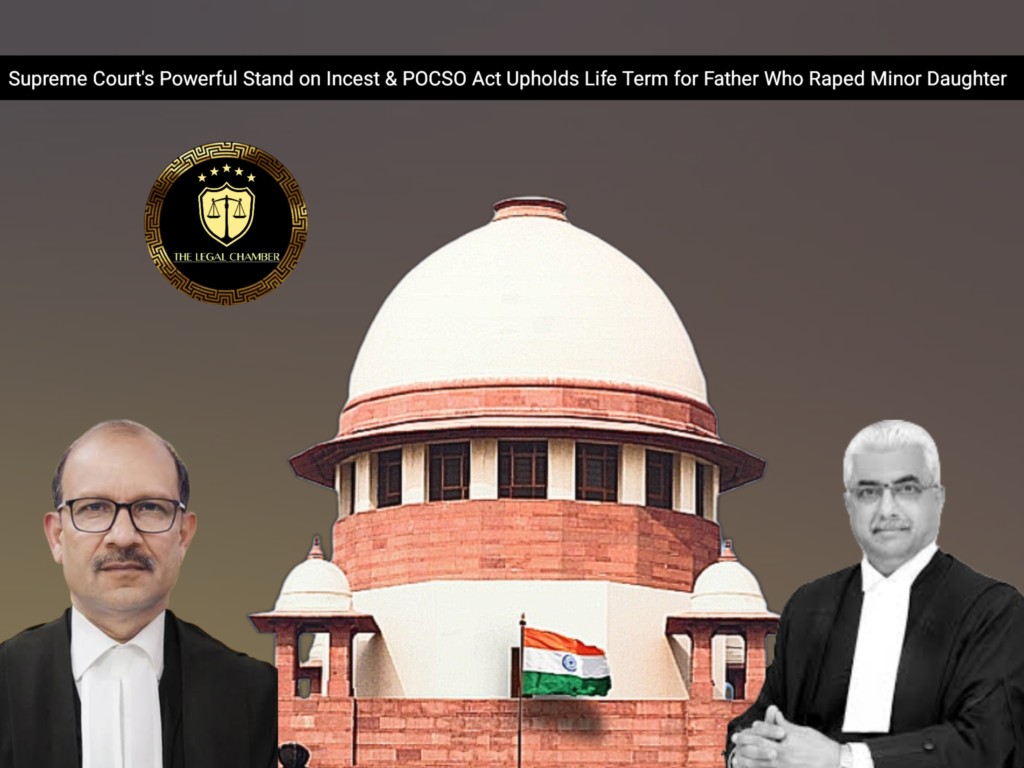
The Supreme Court upheld the conviction under POCSO Act Section 6 and IPC Section 506, affirming the statutory presumption of guilt under Section 29. It emphasized that a child victim’s credible testimony requires no corroboration and denied bail, highlighting the severity of familial sexual abuse and the imperative for stringent punishment.
Facts Of The Case:
The case involved the appellant, Bhanei Prasad @ Raju, who was convicted for repeatedly committing aggravated penetrative sexual assault on his own minor daughter. The victim was approximately ten years old at the time of the incidents, which were not isolated but constituted sustained assaults within the family home. The prosecution case was built primarily on the unwavering and credible oral testimony of the victim (PW-3), which was corroborated by the account of her elder sister (PW-2). The evidence was further strengthened by compelling forensic and medical reports, with a DNA report conclusively sealing the evidentiary chain against the appellant. The Trial Court, after a meticulous evaluation of this evidence, rightly convicted him. The High Court subsequently affirmed the conviction and the sentence of life imprisonment. A key argument raised by the defence, alleging false implication due to strained domestic relationships and disapproval of the daughters’ romantic alliances, was rejected by the Supreme Court as being completely hollow and without merit.
Procedural History:
The procedural history of the case began with the conviction and sentencing of the accused by the Trial Court under Section 6 of the POCSO Act and Section 506 of the IPC. Aggrieved by this decision, the appellant filed Criminal Appeal No. 562 of 2019 before the High Court of Himachal Pradesh at Shimla. The High Court, in a judgment dated July 3, 2024, affirmed the conviction and sentence passed by the Trial Court. Subsequently, the appellant filed a Special Leave Petition (Diary No. 33114/2025) before the Supreme Court of India, which, after hearing the matter, dismissed the petition in limine, upholding the concurrent findings of the courts below.
READ ALSO:Employers Must Accommodate: Supreme Court’s Landmark Ruling on Medical Disability & Jobs
Court Observation:
The Court observed that the testimony of the child victim was clear, cogent, and medically corroborated, requiring no further evidence to sustain a conviction. It emphatically stated that the statutory presumption of guilt under Section 29 of the POCSO Act stood unrebutted. The Bench condemned the act as a profound betrayal of trust, noting that incestuous abuse by a parent is a distinct category of offence that tears at the fabric of familial trust and warrants the severest condemnation. It rejected any plea for leniency or bail, underscoring that such depravity cannot be condoned under the guise of rehabilitation. Furthermore, invoking its constitutional mandate under Article 142, the Court directed the payment of significant compensation to the victim for her rehabilitation, affirming that justice must encompass restitution and not be limited to punishment alone.
Download The Judgement Here